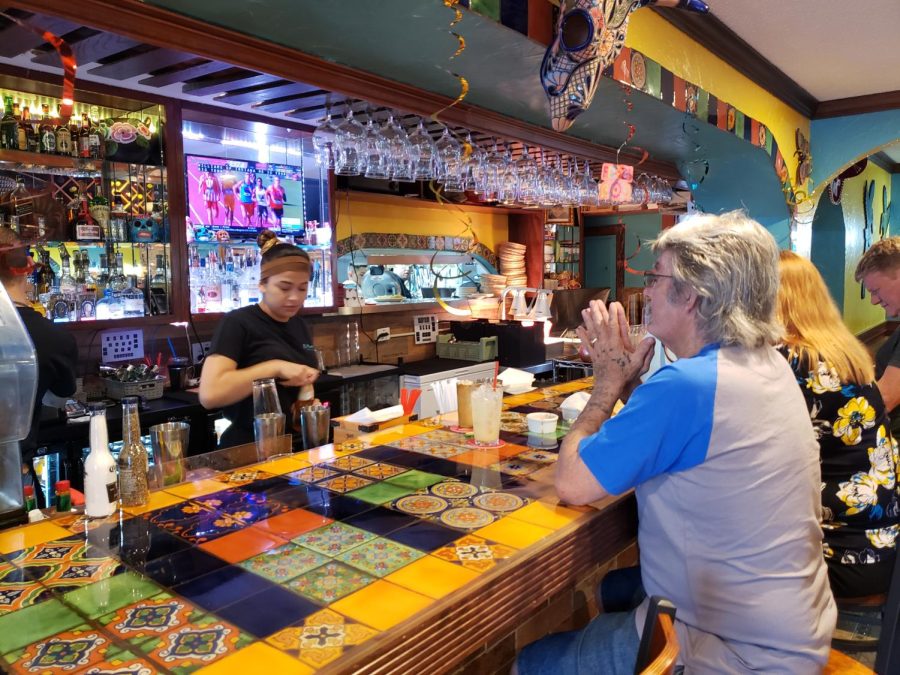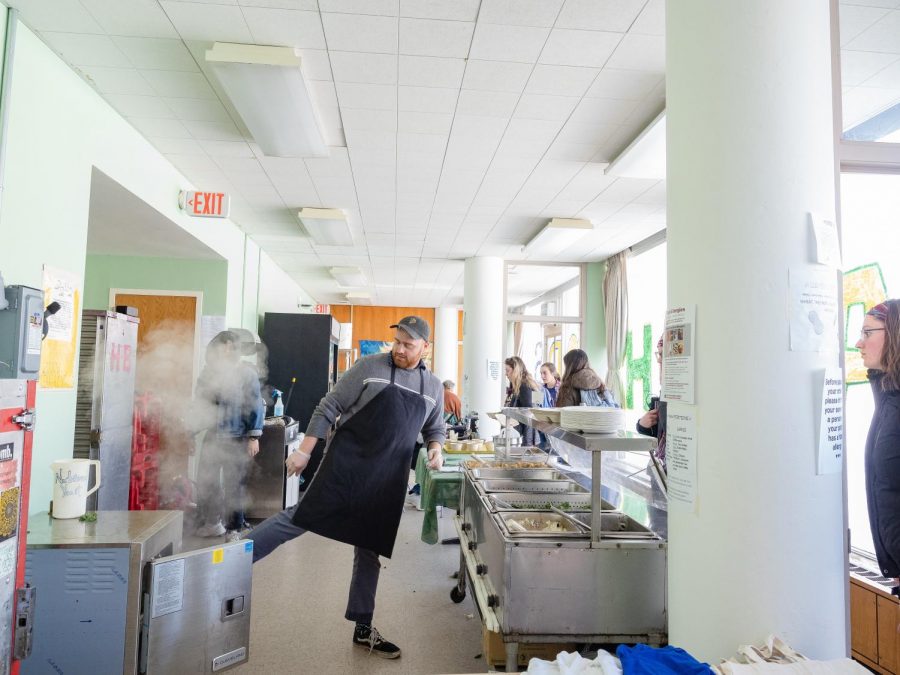When Ira Bryck was eight years old, he started working in his family’s children’s clothing store in Freeport, a village on the South Shore of Long Island. He swept floors, dressed mannequins, folded boxes and helped around wherever needed. The store was an inseparable part of his childhood. “It was probably just cheaper to bring me to work than to get a babysitter,” Bryck says.
After a few stints working in restaurants and teaching in elementary school, Bryck returned to the store one summer and remained for 17 years as he eventually became the fourth-generation owner and president. During his time at the store, he grew closer with his father, a man he describes as strong but loving. As they both only had sisters, they developed a bond that surpassed what was typical of a father and son. “We became brothers,” Bryck says. “It was a very healing thing for us.”
Yet, Bryck had to shut the store down in the late 90s after nearly a century in business. He still fondly reminisces on not only the time spent with his family, but also the regular customers at the store. “The building was home and the customers were coming into my home,” he said.
The Bryck family’s story is one of triumph. Most family businesses don’t make it that long — roughly one-third survive from the first generation into the second, and only a slim 12 percent survive into the third. Mixing family with business is a dangerous game. As the story of the Bryck family exemplifies, it may yield success for both the family’s relationships and business pursuits. However, bringing fragile family relationships into the business world, a world with an incredibly small success rate, also leaves a plenty of room for disaster. These are the risks that those who partner family with business will take, and the repercussions may last for generations.
When Bryck came to the western part of Massachusetts in the late 90s, he initially planned on opening another business, but he realized that it didn’t make sense for him to do so at the time. His father would consistently mail him news clippings of businesses shutting down, cementing Bryck’s decision to follow an alternative career path.
He was then hired by the University of Massachusetts to start and run the Family Business Center, working to advise families in the area to create a “learning community.”
During his 25 years in this position, Bryck worked with many families in the area as they struggled to keep their business afloat and relationships together. This is where he became aware that many families did not have the same success story as him.
“I didn’t realize it at the time, how much unhappiness there is in a lot of family businesses,” Bryck said. “Because the parents wanted the next generation to come in and didn’t really ask them. Then, the parents would finally retire or pass away and the siblings that never really wanted to work together are suddenly business partners.”
Businessman Eric Hagopian understands the risk that comes with partnering siblings in a professional environment.
Hagopian, a middle-aged man wearing bright jewelry and a brighter smile, is confident but polite. He greets all of his employees on a workday morning before making his way to his office, decorated with wooden, antique style furniture in a new, modern building in South Deerfield, Massachusetts. He is a self-proclaimed type-A personality and an expert in sales.
“It’s a struggle for me not to be in control… but I’m aware of that,” Hagopian said.
A painted portrait of his grandfather A.J “Hoppe” Hagopian hangs on the wall. Hagopian points to the family patriarch as he traces down his family’s beginnings in the business world.
His grandfather began their family business, Hoppe Tool Works, after emigrating from Armenia to Springfield, Massachusetts in 1913. The business survived through the Great Depression, World War II and three generations of the family.
By the time it was Hagopian’s and his older brother Doug’s turn to run the business, what was once a tool shop run out of a garage had become Hoppe Technologies, a multimillion-dollar machine components business.
Hagopian happily took over the business as he “came of age” in 1995, and he worked with his father for some time before he was entrusted with the business. “I enjoyed working with him, he and I worked well together,” Hagopian says of his father.
Hagopian understood the rate of failure that family businesses see when entering the third generation. “I was aware of the statistics working against us,” says Hagopian, however “failure is not something I plan for… I spend more time thinking about growth,” he continues with a tone of self-assurance.
When his father passed down the business to the next generation, he split ownership equally between Hagopian and his brother. This was a grave mistake, he explains. “Someone has to be a leader. You can’t have co-leaders and have a business be successful.”
As the company grew in value, eventually selling for just south of $30 million, the decisions became more “complex,” and the brothers had a harder time compromising. Doug would make decisions that Hagopian would not be happy about. Hagopian was also president of the company, something he believes grew disdain in his brother who was five years his senior.
“We were successful despite ourselves,” said Hagopian. This constant struggle of power and inability to compromise on major decisions, though, created a lasting split between the brothers.
“We were really best buds,” Hagopian says. “Now we barely talk.”
He explains the strained relationship with his brother almost somberly, but maintains that it was a result of his father lacking the “testicular fortitude” to make either of the brothers the leader of the company, which was eventually sold to a third party.
Hagopian gave mixing family and business one last shot when he hired Doug’s son for the company he now leads as the chief executive officer, Peerless Precision Tools.
He hoped that he could eventually pass the company down to him and exit it, but his nephew came in with the “right age, right experience, wrong attitude,” says Hagopian. Although Hagopian did not want to do anything that would strain family relationships, he eventually fired his nephew for his inability to accept mentorship.
Hagopian now swears by the policy of not mixing family with business.
“The term family business is an oxymoron,” Hagopian remarks. “You either have a business or a family.”
One of the most damaging aspects of family businesses, Hagopian explains, is the lack of separation between the personal and professional. “Whether we’re at the Thanksgiving table or the board meeting table, it’s the same conversation,” he says.
Hagopian maintains that the company he currently owns will be sold to a third-party company or an employee. His two children and two step-children are all ambitious and bright and on their own career paths. Although he sometimes brings them to his office on weekends as his father did with him, he exerts no pressure on them to enter into the business world.
Many children who are born into a family business are brought up with the expectation that they will continue their family’s legacy. The pressure of keeping a business alive intertwined with the pressure to make your parents proud can often overwhelm those involved.
Being the oldest children’s clothing store in the United States, in operation since 1904, it was difficult decision for Bryck to shut his store down. But as he noticed the surrounding neighborhood becoming more dangerous, he felt it was necessary.
While the store was still in running, Bryck also dealt with many feelings of shame. He vividly remembers his father telling him as a young boy “when all else fails, there’s the family business.” Bryck misunderstood his father’s reassurance and began to think that he was failure if he started working in the store. So, he avoided it, as long as he could, until it drew him back in his adulthood. But he still found it difficult to reconcile his career path with his feelings of self-worth.
“People would say to me, do you still work for your parents? And I’d say no, I work with my parents, not for my parents,” Bryck says. “And then I’d walk away and I’d say, I am such a loser. I work for my parents.”
Feelings of guilt and responsibility are not uncommon in children of business owners. Michael Klein, a consultant specializing in advising family businesses, and author of a collection of stories and expert advice called “Trapped in the Family Business,” has spoken to many families who have similar experiences.
“The longer the family business has been in existence, in my experience, the greater the pressure, and feelings of obligation to keep it going,” Klein says. “Unless it’s clearly inevitable, that the industry or the business cannot survive.”
Klein also explains that many experience this pressure without being fully conscious of it. “A lot of my clients come to me very confused, because they know that there are these forces kind of acting on them. But it’s right below the surface.”
—
Elizabeth Wood never dreaded taking over her family’s business. Rather, her family’s farm and ice cream stand was a safety net for her. Wood’s great-great grandfather, Charles Wood, bought the land in the seaside town of Westport, Massachusetts in 1900. Originally started as a dairy farm, the business evolved to include a vegetable stand and now solely sells ice cream.
Wood spent her childhood as a “farmer’s daughter,” something she reminisces on with great fondness and gratitude. Her memories wander to the times she would play in the fields while her parents worked in the barn, and nap in the farmstand when she got tired.
She would ride on the haystacks in the back of the tractor as her father toiled in the fields. When it was time for school, she would be dropped off in a trailer full of cows to the amusement of the other preschoolers.
Wood grew up with two brothers who were not nearly as interested in working on the family farm, while she was always around to help at the ice cream stand. After graduating college with a degree in psychology, Wood went on to work in a group home for men with mental illnesses.
When her father retired, it was “no question” she would continue running the ice cream stand. Her job at the group home was mentally exhausting, and the opportunity to take over the ice cream stand instead was incredibly relieving.
Yet, Wood is still concerned about her family. Now in her early 30s, she confesses that she struggles to operate the business while raising a young daughter, and often has nightmares that her business will fail. The success of the stand is especially burdening to Wood because she fears that she is disappointing her father.
“I do worry that I’m going to let down my dad,” Wood said. “I know I’m letting him down… because he says stuff to me all the time, that I need to pay more attention to the business. And I know I [need to] but I don’t know how to balance motherhood and the business.”
Despite the pressure she feels to make her father proud, Woods remains grateful for the family business and her ancestors that make her current lifestyle a possibility.
Keenly aware of how precious time is, Wood is especially appreciative of all the days the farm allowed her to spend with her parents as a kid. Now as the mother of a young girl, she deeply values the moments she gets to spend with her daughter.
“I don’t like hard work,” Wood admitted with a chuckle. “I pray to God every night and thank him for everything that I have, because I am so blessed that I grew up where I did on the farm with the business and that I inherited it and that I only ‘work’ three months out of the year.”
—
For the Artiga’s, family and business has always gone hand in hand.
Already the mother of a six-year-old at the age of 18, Ana Lourdes Artiga came to the U.S. in 2004 from Cojutepeque, El Salvador, after being denied entry three times.
Eight years later, Artiga and her parents brought their knowledge and culture and became co-owners of El Comalito, which now serves authentic Salvadoran and Mexican food in their locations in Amherst and Easthampton, Massachusetts.
Her family had opened and closed many businesses before Artiga finally took on a leadership position and found success with El Comalito. The idea of owning the restaurant was a dream of Artiga’s, and it meant that she could work with her son by her side.
However things have not been smooth sailing for the family since opening the business. The restaurant was originally led by Artiga and her parents, but her father, already exhausted by the constant arguments, left the business around six months in. Artiga and her mother Mirna also often disagree on business decisions, but Artiga now essentially manages the restaurant by herself, leaving less room for conflict.
The restaurant’s leadership continued into the next generation with the Easthampton location when Artiga’s son, Fernando Artiga, became the manager. However, shortly after, Fernando and his wife became eager to pursue their own business ideas and opened another restaurant, pulling the family into different directions.
Artiga understood the value of labor before she was a teenager. Her father had worked at the Amherst location of Antonio’s pizza in the 90s before returning to El Salvador to open his own pizza store, which Artiga began working when she was 11-years-old. Artiga became a mother and worker at an incredibly young age, and at one period of her life, she had to feed her son and herself by grabbing leftover pizza’s out of the trash.
She states that her son and daughter in law’s dissatisfaction with El Comalito, a source of tension within the family, is because they didn’t grow up with the same hardships and appreciation for hard work with slow returns.
“[Artiga wants] to be comfortable for the long term, and I think her son wants to see great returns, but doesn’t understand how it took the 10 years to get there. And he wants it overnight,” explains Lisa Totz, the businesses consultant for El Comalito. Totz, owner of LT consulting, has been working with the Artiga’s for the past few years, helping them overcome language barriers to make their restaurant a success.
The family restaurant also played a large role in her divorce, Artiga explains. Artiga says that her ex-husband was not supportive towards her when she decided to open the second location, and his attitude and behavior during that time was a factor in her decision to separate.
Artiga’s cousins, who previously worked with her, also left and opened their own business, copying many parts of the El Comalito menu. Feeling abandoned by many of her family members, Artiga is turned off by the idea of mixing family with business. When working with non-relatives you can still be betrayed “but if it’s your family, it hurts. Because you don’t expect it from them,” she says.
Artiga continues to look ahead optimistically despite the challenges. Already the owner of two successful locations, she plans on continuing her business endeavors with the same ambition and fortitude. Totz explains that they have already looked at different properties to open more locations, but Artiga’s current focus is making sure her business survives the pandemic.
Although some of her family relationships have been hurt by the restaurant, Artiga is motivated to succeed because of the generations of business people that have come before her. El Comalito first opened its doors to the public nearly 10 years ago, but the entrepreneurial kick has been in Artiga’s family for decades.
Despite having no formal education, both of Artiga’s grandmothers were successful business women, and they formed Artiga’s early ideas about the world of work. Artiga would often go into town by her paternal grandmother’s side to help sell quinceañera dresses made in her factory.
Her maternal grandmother, who passed away in 2012 on the grand opening of El Comalito in Amherst, had a grocery store and would give Artiga cases of vegetables for her to sell. The day of her passing was difficult for Artiga, but she persisted with her grandmother’s work ethic and blessings to make the business a success.
—
Many families, like the Hagopian’s, have been injured by their entanglements with business, but Totz insists that family businesses can be successful with the right mindset.
“It can work. If people are willing to work together, it can work very well. I’ve seen many successful family businesses,” Totz says. ‘If you can understand the different dynamics of each individual’s contributions, you can find success. And respect really comes down to it too, if you don’t have respect for one another, it doesn’t work.”
Bryck still longs for the comfort his family store brought him. He still walks around in the imposing building in his mind, particularly when he is trying to fall asleep. During a vacation that he took in Turkey, long after he had closed the store down, Bryck met a rug merchant and his family in Selcuk, an Aegean city with ancient roots. The store-owning family reminded him of the enduring value of community.
“Every night, we would just have dinner in front of his store, his mother would cook it and his brother would deliver it.” Bryck says. “It just felt so homey, and I had already closed my store. And it was like, I missed this. This is what makes a town, and a society.”
Mixing family and business is a risk, but it can be worth it. Family businesses can bring comfort to many who own them, but also to the customers, who are treated like family by the people who serve them. El Comalito stands out not only because it is owned by Latina women, but because of its homey atmosphere. Artigas’ passion is sharing her “culture and community,” explains Totz. On a busy Thursday evening, the vibrant and warm dining room fills quickly.
Traditional Mexican garments and tiles hang against the brightly colored walls that resemble the neighborhoods of El Salvador. The close-knit staff, who are not related by blood but are bonded by a mutual understanding of hard work, exchange smiles and conversation in Spanish as they serve homemade traditional dishes like Pupusas to the eager guests.
Bryck explains that his store created a similar intimate environment for its customers.
“In terms of the deeper meaning of the job, it was the relationships. We were a neighborhood store and people knew us,” Bryck says. “I knew these kids, and when they got older and got married, I’d [serve] their kids. It was a small town feeling that is lost in malls and department stores and online. That’s missing.”
Saliha Bayrak can be reached at [email protected] and followed on Twitter @salihabayrak_.



















